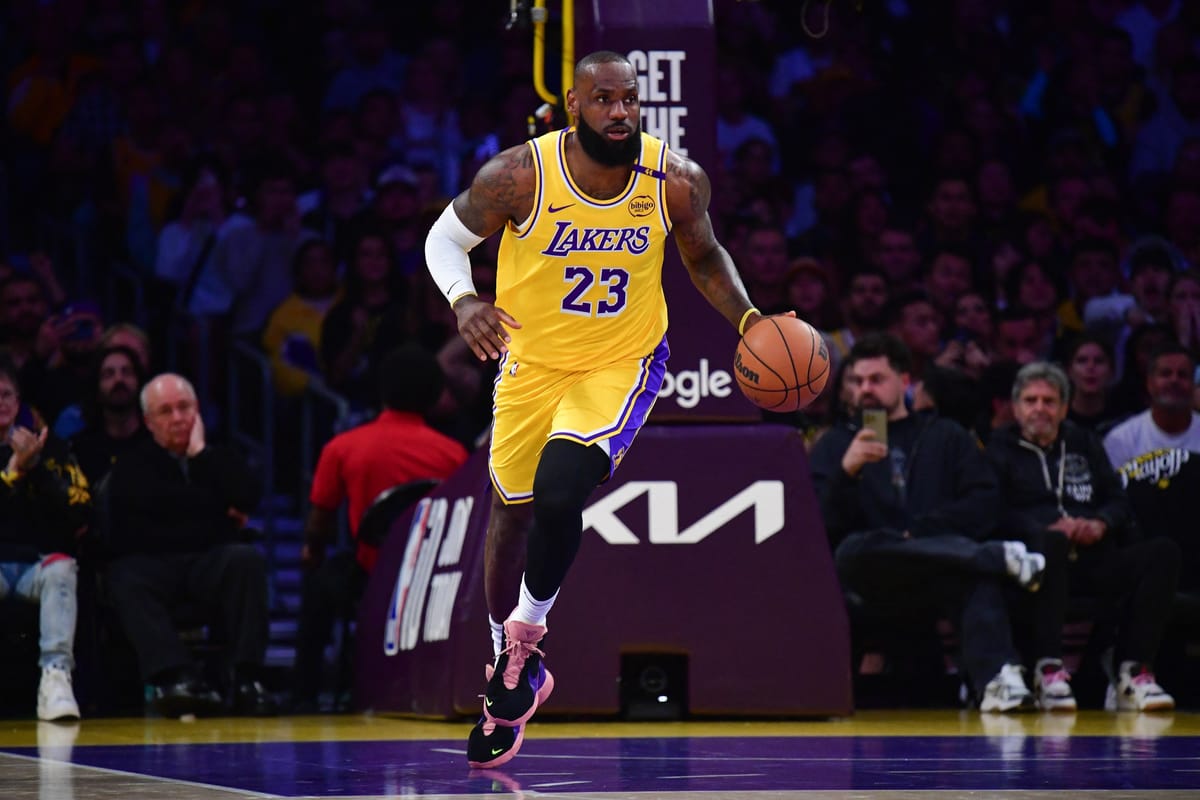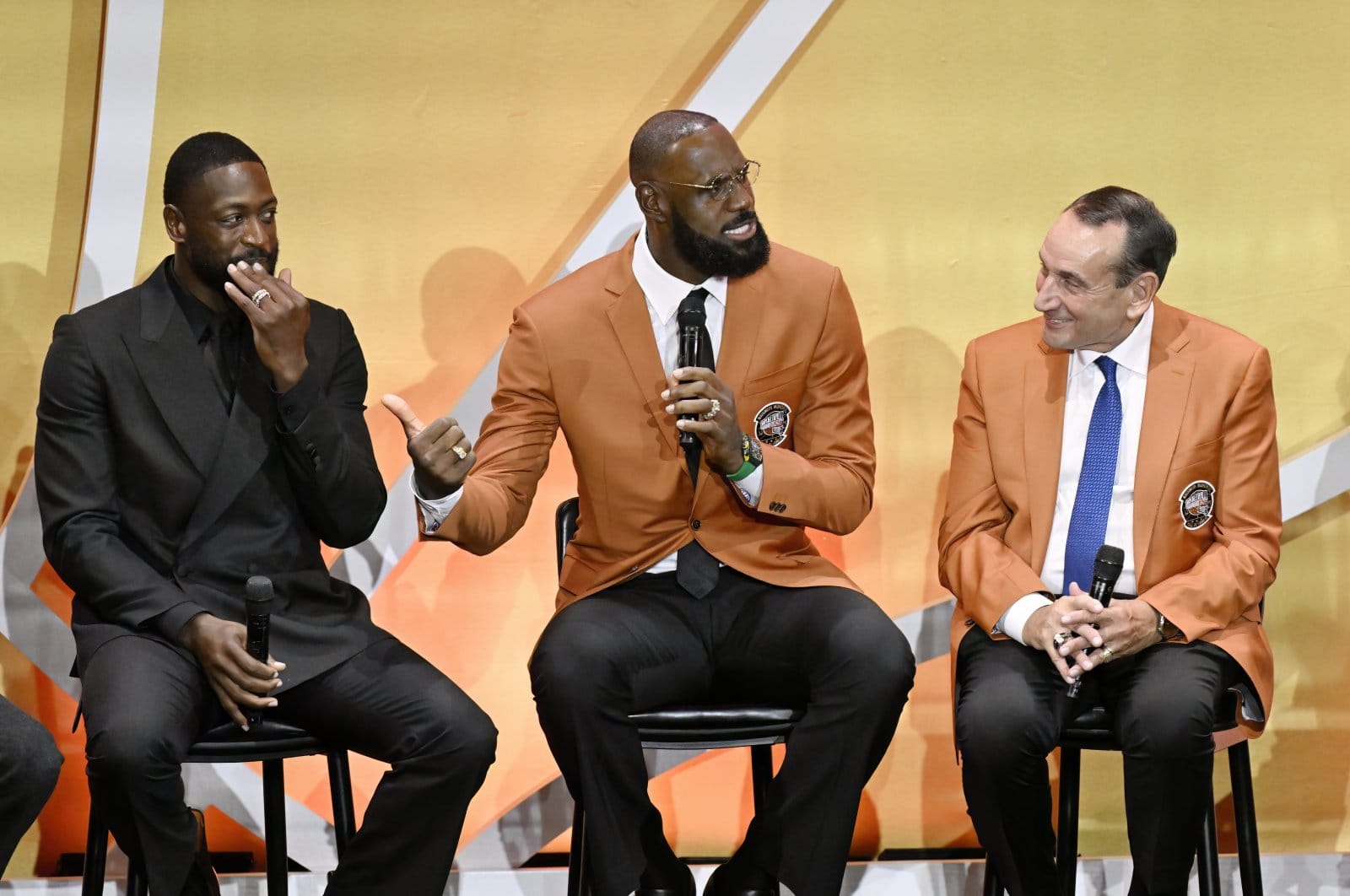Fact-Check: Did LeBron James Write an Op-Ed for China’s State Media? An Investigative Report
Debunking a viral rumor, this investigation uncovers the truth behind a purported LeBron James op-ed in China's state media.

Written by Lavanya, Intern, Allegedly The News
BEIJING, September 11, 2025
In a digital age saturated with misinformation, the line between genuine news and coordinated propaganda can be blurry. A recent viral story claiming NBA superstar LeBron James wrote a glowing op-ed for China’s official Communist Party newspaper, People's Daily, ignited a firestorm across social media and news outlets. The narrative, amplified by critics, suggested James was actively endorsing a regime with a controversial human rights record, reigniting a geopolitical debate that has plagued the NBA for years.
The rumor gained traction on Monday, September 8, 2025, after several news outlets reported that LeBron James had penned a piece for the People's Daily. This was a shocking claim, as it would mark the first time a major U.S. athlete had authored an op-ed for the Chinese state-run media mouthpiece. The timing was particularly sensitive, coming nearly six years after James's comments criticizing former Houston Rockets General Manager Daryl Morey for a pro-Hong Kong tweet, which sparked a multi-year ban of NBA games on Chinese television. The narrative quickly spread, with critics and commentators using the purported op-ed as a definitive piece of evidence against James.
The Source of the Viral Claim
The story originated from a Chinese-language article published in the People's Daily. While the article did carry James's name on the byline, it was not an op-ed in the traditional Western sense. Investigative reporting by The Athletic and other news outlets quickly revealed the truth: James did not submit a pre-written essay or opinion piece. Instead, the publication compiled and translated remarks he made during a series of group interviews with reporters during his recent Nike-sponsored "Forever King Tour" in China, where he visited Shanghai and Chengdu.
Sources close to James confirmed that he did not author or submit any editorial. The quotes attributed to him were, in fact, accurate and were spoken during media sessions, but they were taken out of the context of an interview and presented as an authored piece. The confusion appears to stem from a nuance in translation and publication practices. While the People's Daily referred to James as the "author," the original text also noted that the content was based on his interviews and edited by a reporter. This subtlety was lost in translation and in the rush to publish, allowing a misleading narrative to take hold.
A Timeline of the Controversy
- October 2019: Former Houston Rockets GM Daryl Morey tweets "Fight for Freedom. Stand with Hong Kong," sparking a massive backlash from the Chinese government. In response, China's state broadcaster, CCTV, has banned NBA games for nearly three years.
- October 2019: LeBron James publicly criticizes Morey, stating he "wasn't educated" on the situation and that his tweet could have had negative ramifications for many. James receives significant criticism for his stance, with many accusing him of prioritizing financial interests over human rights.
- 2020-2024: The NBA works to repair its relationship with China, slowly seeing broadcasts return to Chinese television.
- September 2025: LeBron James travels to China for his "Forever King Tour" with Nike, his first visit since the 2019 controversy.
- September 8, 2025: The People's Daily publishes an article with James's name on the byline. News outlets quickly pick up the story, reporting that James has written a pro-China op-ed.
- September 9, 2025: Multiple media outlets, citing sources close to James, debunk the claim, clarifying that the article was a compilation of his interview quotes, not an authored essay.

The Role of Misinformation and Media Literacy
This incident highlights a critical vulnerability in the modern information ecosystem. The combination of a highly polarized political climate and the rapid-fire nature of social media creates fertile ground for misinformation to spread. The initial reports, which were framed as a shocking development, resonated with a pre-existing narrative about James and the NBA's relationship with China. This made the story instantly shareable, regardless of its veracity.
The fact that a major news organization's reporting on the matter was based on a misinterpretation of a byline demonstrates the need for greater scrutiny and cross-cultural understanding. Experts in Chinese media and communication point out that the byline conventions in state-run outlets can differ from those in the West. As one quote from a legal expert noted, "The People's Daily is a mouthpiece of the Communist Party. Any content with a byline from a prominent individual, particularly a foreigner, is not an endorsement but a carefully curated message. It’s an act of propaganda, regardless of whether the person authored it or not." The article serves as a powerful symbol for Beijing, signaling to its people that even one of the world's most famous athletes is supportive of the country's "bridge-building" efforts.
What Happens Next?
The fallout from this misattributed piece is ongoing. While the core claim has been debunked, the initial narrative has already solidified in the minds of many. James has remained silent on the matter, choosing to let his representatives and news reports clarify the situation. This silence has, in itself, become a source of criticism, with some arguing that his refusal to personally address the matter is an implicit admission of guilt or, at the very least, a sign of his unwillingness to directly confront the controversy.
The incident underscores the delicate tightrope act that the NBA and its players must perform in a globalized world. The league's massive financial investment in the Chinese market means that any perceived misstep can have profound consequences. This latest episode demonstrates that even the most carefully managed public relations tour can be hijacked and re-framed by forces beyond an athlete's control.
Navigating the Information Labyrinth
The viral story about LeBron James and the People's Daily was not a fact-check on his character, but a powerful case study in the anatomy of misinformation. It was not a lie he told, but a truth that was twisted by a foreign regime for its own propaganda. This incident serves as a stark reminder that in our interconnected world, context is everything and that even an athlete's words can become a political football in a much larger game.
What's the Game Plan Now?
How does the speed of social media news cycles contribute to the spread of misinformation, and what can individuals do to verify information before sharing? Should public figures like LeBron James be held accountable for the way their words are used by foreign state-run media, even if they did not personally author the content?
Sources
The Athletic, Newsweek, Associated Press, Fox News, TalkBasket.net, and verified public footage.




